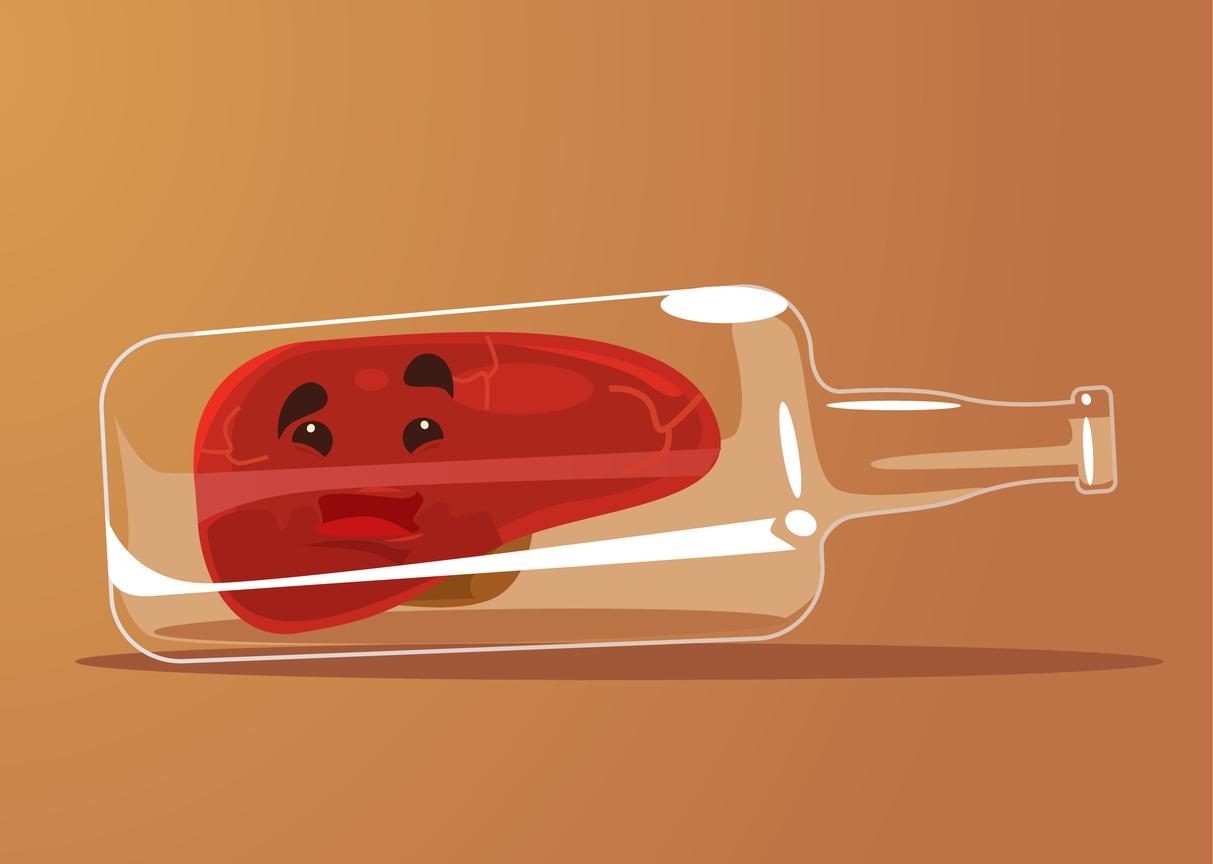
Memory loss due to alcohol
Korsakov’s syndrome is typically a disorder that is part of the collective consciousness, but which not everyone can just give a definition of. ‘Something with alcohol’ is often shouted. ‘A memory disorder without the involvement of dementia’ is a better description. The reality is that someone becomes completely helpless and never recovers.
Korsakoff’s syndrome – also known as ‘s disease Korsakov referred to as – is a condition in which the portion in the brain is affected that causes the memory and the concept of time. Memory loss occurs and due to the malfunctioning memory, a patient can no longer learn anything. This often leads patients to subconsciously put up fantasy stories to fill the gaps in their memory.
Time
Because it is difficult to remember or learn something, fear of failure often arises. Moreover, time and place no longer mean anything: for a patient, it can just as well be morning or evening anywhere. So it’s no surprise that personal neglect is also lurking. To top it off, the cause of Korsakoff’s syndrome – long-term alcoholabuse for about 20 to 30 years – usually also causing abnormalities in organs such as the heart, the liver and the pancreas.
booze
Cheers indeed, because Korsakov’s syndrome only arises from years of drinking; there is no simpler description. When the condition was first discovered, it was thought to also affect pregnant women who vomit a lot or people with intestinal problems. Swedish physician Magnus Huss first wrote about the condition in 1852, but Russian psychiatrist Sergei Korsakov published his articles in 1887 on amnesia without dementia in the German and French journals and saw his name associated with the disease.
Vitamin B1
The direct cause for the development of Korsakoff is a lack of thiamine, or vitamin B1. The average person gets this vitamin with the greatest of ease. It is in pork, grains, rice, milk, egg yolk, legumes and potatoes. But you have to eat for that and that is the problem with years of alcohol addicts: they drink but do not eat.
And so not only do they get too little vitamin B1, what does enter is not properly absorbed by the body because the alcohol has damaged the intestines and liver. Over time, Korsakoff’s syndrome develops. It is estimated that there are approximately 8,000 to 10,000 Korsakov patients in the Netherlands.
Symptoms
In fact, the symptoms for recognizing Korsakoff’s syndrome are no different from the symptoms for recognizing alcohol dependence. Slowly but surely, the drinker’s normal course of affairs is disrupted. It is becoming more difficult to make agreements, social behavior is becoming increasingly unadjusted, normal functioning at work is no longer possible and financially it usually becomes a mess.
Because addicts trained in disguising their addiction, normal conversations are usually still possible, making it difficult to recognize Korsakoff’s syndrome. This usually only happens when it is too late.
Progressive
The advantage of Korsakoff’s syndrome is that it is not a progressive disease: it does not get worse once it is there. Before Korsakoff’s syndrome occurs and the amount of vitamin B1 in the body has reached the critical lower limit, injections of the vitamin can even be given to prevent the condition from striking. If this does happen, a patient can stabilize or even improve his condition by simply stopping drinking and working on his health. However, there is no cure for the condition: dead brain cells never come back.
Unfortunately, after really long-term alcohol abuse, someone is almost always so far gone that the will, the strength or even the awareness to stop drinking is not possible. Because it is actually impossible to live with a Korsakov patient, reception in a psychiatric hospital, a nursing home or sheltered housing usually awaits.
















